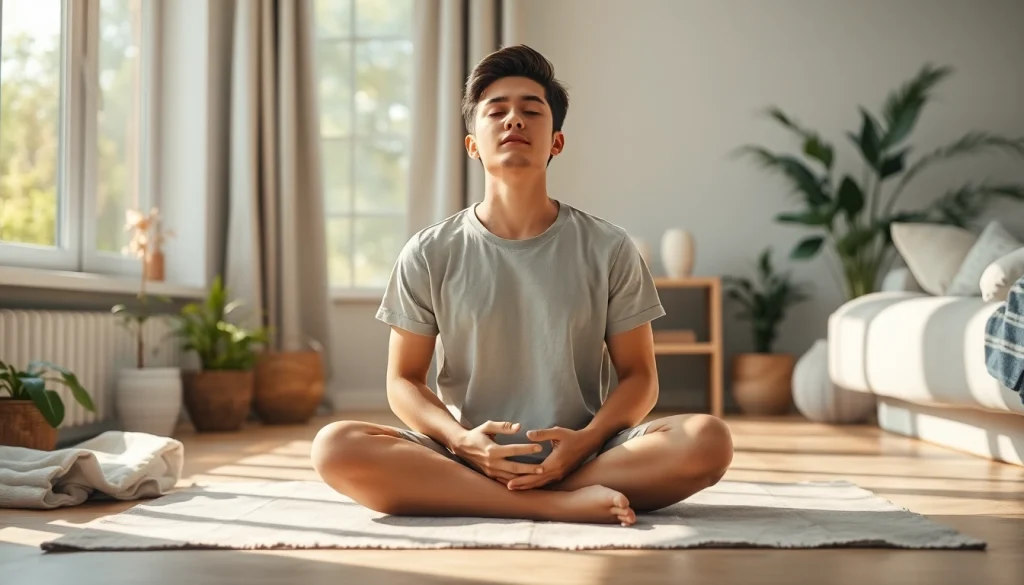
Understanding Anxiety: What You Need to Know
Anxiety is more than just a feeling of worry or stress; it’s a complex psychological condition that can profoundly impact a person’s quality of life. With increasing cases reported worldwide, understanding the intricate nature of anxiety has become essential for effective management and coping. This comprehensive guide focuses on dealing with anxiety by exploring its definitions, symptoms, effects, and evidence-based strategies to manage it effectively.
Defining Anxiety Disorders and Their Symptoms
Anxiety disorders encompass various conditions, each characterized by excessive fear or anxiety. The most common types include:
- Generalized Anxiety Disorder (GAD): Characterized by persistent and excessive worry about various aspects of life, such as health, work, and social interactions.
- Panic Disorder: Involves recurrent panic attacks, which are sudden surges of overwhelming fear that come unexpectedly.
- Social Anxiety Disorder: A significant fear of social situations, leading to avoidance that can cripple daily functioning.
- Specific Phobias: Intense fear related to a specific object or situation, such as heights or spiders.
- Obsessive-Compulsive Disorder (OCD): Involves unwanted and intrusive thoughts (obsessions) and ritualistic behaviors (compulsions) meant to reduce anxiety.
Symptoms may vary, but often include feelings of apprehension, increased heart rate, sweating, trembling, fatigue, trouble concentrating, and sleep disturbances.
The Psychological and Physical Effects of Anxiety
Anxiety doesn’t only affect the mind; its implications span both psychological and physical realms. Psychologically, individuals may experience irritability, difficulty concentrating, or feelings of detachment. Physically, anxiety can result in insomnia, muscle tension, gastrointestinal issues, and a compromised immune system. With chronic anxiety, these symptoms may lead to additional health issues such as depression or increased risk of chronic illnesses.
Common Myths and Misconceptions About Anxiety
Despite the prevalence of anxiety disorders, several misconceptions exist. These include:
- Myth 1: Anxiety is just stress, and everyone experiences it similarly. Truth: Anxiety disorders are distinct clinical conditions that require tailored coping strategies.
- Myth 2: People can overcome anxiety by simply ‘snapping out of it.’ Truth: Managing anxiety often requires sustained effort, sometimes including therapy and medication.
- Myth 3: Anxiety only affects adults. Truth: Anxiety can occur at any age, from childhood through adulthood, manifesting in different ways.
Proven Strategies for Dealing with Anxiety
Addressing anxiety effectively involves a combination of mental, physical, and emotional strategies. Here are some well-researched approaches:
Mindfulness and Meditation Techniques
Mindfulness practices help individuals stay grounded in the present moment, offering a way to manage anxiety. Techniques include:
- Mindfulness Meditation: This involves focusing on your breath and acknowledging thoughts as they arise without judgment.
- Body Scanning: A practice where one focuses on different body parts to promote relaxation and awareness.
- Guided Imagery: Using visualization techniques to create a mental escape from anxious thoughts.
Research shows that consistent mindfulness practice can reduce anxiety symptoms by fostering a greater sense of control and improving emotional regulation.
Physical Activity and Its Benefits for Mental Health
Regular physical activity is a powerful antidote to anxiety. Exercise releases endorphins—hormones that act as natural painkillers and mood elevators. Studies indicate that:
- Engaging in aerobic exercise for just 30 minutes several times a week can significantly lower anxiety levels.
- Activities such as yoga and tai chi combine physical movement with mindfulness, further enhancing relaxation.
Creating a balanced exercise plan can be instrumental in managing anxiety effectively.
The Role of Diet in Managing Anxiety Levels
Research reveals a direct link between diet and mental health. Certain foods can naturally modulate anxiety levels, including:
- Complex Carbohydrates: Foods like whole grains promote serotonin production, which helps to calm the mind.
- Omega-3 Fatty Acids: Found in fish, these nutrients have been associated with decreased anxiety levels.
- Hydration: Adequate water intake is critical; dehydration can exacerbate feelings of anxiety and stress.
A focus on a balanced diet rich in nutrients can mitigate some anxiety symptoms and promote overall mental wellness.
Coping Mechanisms: Daily Practices to Reduce Anxiety
Implementing daily coping mechanisms can build resilience against anxiety. Here are several effective practices:
Journaling and Self-Reflection Practices
Writing can be a powerful therapeutic tool. Journaling helps in processing emotions and thoughts, which can reduce anxiety. Here are some suggested journaling techniques:
- Gratitude Journaling: Focusing on positive life aspects can shift attention from anxiety-provoking thoughts.
- Stream of Consciousness Writing: Writing without a filter allows thoughts and feelings to emerge without judgment.
- Goal Setting: Clearly defining personal goals can provide purpose and reduce feelings of being overwhelmed.
Create a Support Network for Emotional Wellness
Connecting with others who understand your experience can combat feelings of loneliness often associated with anxiety:
- Friends and Family: Having a support system can provide an outlet for expressing feelings and sharing coping strategies.
- Support Groups: Joining groups specifically for anxiety management allows sharing experiences and gaining new insights.
Building a network of support can be crucial in managing anxiety effectively.
Establishing Healthy Routines and Boundaries
Maintaining a consistent daily routine can instill a sense of normalcy, especially in turbulent times. Consider the following tips for healthy routines:
- Consistent Sleep Schedule: Prioritizing sleep can enhance cognitive function and emotional regulation.
- Timely Meals: Regular meal times can maintain steady energy levels and minimize mood swings.
- Setting Boundaries: Learning to say no and limit interactions that induce stress are essential skills for mental wellness.
When to Seek Professional Help
While many manage anxiety independently, there are times when professional intervention becomes necessary. Understanding when to seek help is vital.
Recognizing Signs That You May Need Therapy
Some indicators that professional assistance may be beneficial include:
- Anxiety that disrupts daily functioning, including work or social activities.
- Persistent physical symptoms that lack a medical explanation.
- Feeling overwhelmed by emotions and unable to cope.
Types of Therapy for Anxiety Management
Several therapeutic approaches have demonstrated reliability in managing anxiety:
- Cognitive Behavioral Therapy (CBT): Focuses on identifying negative thought patterns and replacing them with healthier perspectives.
- Exposure Therapy: Gradually exposes individuals to their sources of anxiety in a controlled manner.
- Acceptance and Commitment Therapy (ACT): Encourages accepting feelings rather than fighting them while committing to personal values.
Medication Options and Their Considerations
In some cases, medication may be prescribed to manage anxiety symptoms. Common types include:
- Antidepressants: Often used to treat anxiety disorders, these medications can stabilize mood.
- Benzodiazepines: Typically prescribed for short-term use during acute anxiety episodes due to the risk of dependence.
Consulting a healthcare professional is critical for appropriate diagnosis and treatment options.
Maintaining Long-Term Mental Health
Long-term management of anxiety requires ongoing effort and self-care practices. Here are critical strategies:
Building Resilience Against Future Anxiety Episodes
Resilience can be cultivated through various practices, including:
- Developing Problem-Solving Skills: Enhancing the ability to navigate stressors can empower individuals.
- Practicing Self-Compassion: Being kind to oneself can reduce negative self-talk associated with anxiety.
- Engaging in Continuous Learning: Seeking formal or informal education about anxiety management techniques can create a sense of agency.
Continual Learning: Resources for Ongoing Support
Staying informed about anxiety management can provide ongoing support:
- Online forums and communities offer shared experiences and advice.
- Books, podcasts, and webinars that focus on mental health can enhance understanding and coping strategies.
Creating an Anxiety-Resilient Lifestyle
Designing a lifestyle that minimizes anxiety involves integrating the discussed strategies holistically. Consider focusing on:
- Prioritizing self-care activities to recharge.
- Balancing responsibilities with downtime to prevent burnout.
- Embracing hobbies and interests that promote joy.
In conclusion, while dealing with anxiety can feel overwhelming, understanding its nature and implementing proven strategies can drastically improve quality of life. A proactive approach involving mindfulness, physical health, emotional support, and professional guidance can provide significant relief. Each step taken toward managing anxiety contributes to resilience and well-being.






